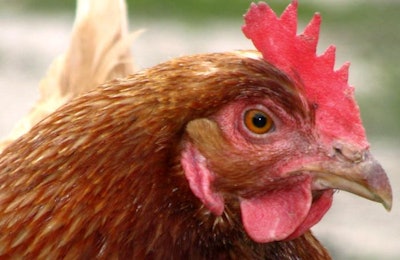
A new application of CRISPR gene editing technology could hold the key to eradicating avian leukosis virus (ALV) by producing modified chickens that are completely resistant to the disease.
According to a recent paper in PNAS, researchers from the Czech Republic successfully produced ALV resistant chickens by implanting modified germ cells into the testes of adult cockerels. The cockerels then went on to product offspring that were totally resistant to ALV, whereas unmodified wild-type chickens remained susceptible to the virus.
Though the paper only evaluated the technique in a laboratory breed of chickens, Pavel Trefil and Jiri Hejnar, two of the report’s authors, said they believe the results could be translated to commercial breeds immediately, with ALV-resistant chickens ready for customers within a year and a half.
“We are ready for the translation,” they wrote in an email.
Avian leukosis virus, though difficult to eradicate through conventional means, was the perfect target for a CRISPR trial, according to the researchers. Because the virus requires a specific cellular receptor, engineering resistance to the virus was as simple as deleting a single amino acid.
Getting the modified genes into live chickens is more difficult.
Traditionally, attempts to produce genetically-modified chickens have involved the attempt to implant modified germ cells into freshly laid eggs. Although possible, success with this method is less than routine.
Two teams—one from BIOPHARM and the other from the Czech Academy of Science—tried a different approach. Instead of implanting the germ cells in eggs, they added them to testes that were then transplanted into adult cockerels, where the germ cells eventually matured into viable sperm. In their latest paper, his team demonstrated that the offspring that inherited the modified genes from the cockerels remained resistant to ALV two years later.
As the modified chickens were only resistant to the specific ALV-J strain of the virus, it is possible that in time the virus could mutate and work around the genetic modifications. But the same principle could be used to confer resistance to future strains, as well.
















